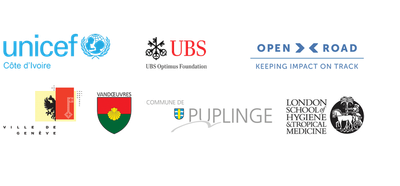Learn in Peace and Educate Without Violence in the Tonkpi region (2017-2019)
In 2017, Graines de Paix initiated the 16th cycle of continuing education in the Tonkpi region. This is a key program because it concerns the first cycle whose results were evaluated. An international research team from the London School of Hygiene and Tropical Medicine studied the real impacts of the training provided by observing the behavioral changes in teachers inferred from teachers and students.
The Tonkpi Region
Program Objectives
This teaching cycle’s goal is to reduce the use of physical and psychological violence towards students and to improve the capacity of teachers to use active pedagogical methods centered on the student.
Click here to access the Theory of Change of the project as well as more detail on the its objectives (page under construction).
Our Actions
Training and support for teachers and educational advisors
1,595 primary and preschool teachers and 20 educational advisors in the region were trained and monitored individually, on two occasions. This action facilitated their transition from a violent discipline method to a more participatory approach that is inclusive and respectful of students’ rights.
Distribution of educational kits to primary and preschool teachers in the region
1,600 educational kits were distributed to trained teachers; they contain experiential activities to bring to students as well as numerous tools for classroom management.
Our Impacts
The results of the external evaluation confirm statistically significant changes in behavior:
- A greater rejection on the part of teachers of the use of violence as a method of discipline
With the students, with my colleagues, I became more patient, more understanding”
The Graines de Paix program supported the development of active listening between students and teachers.”
- More motivated and confident teachers in their capacity to use non-violence techniques.
Before, I found it difficult, but today, I am easily able to let go of my stress and anger.”
Download the final report from the London School of Hygiene and Tropical Medicine
In English
In French
Partners




